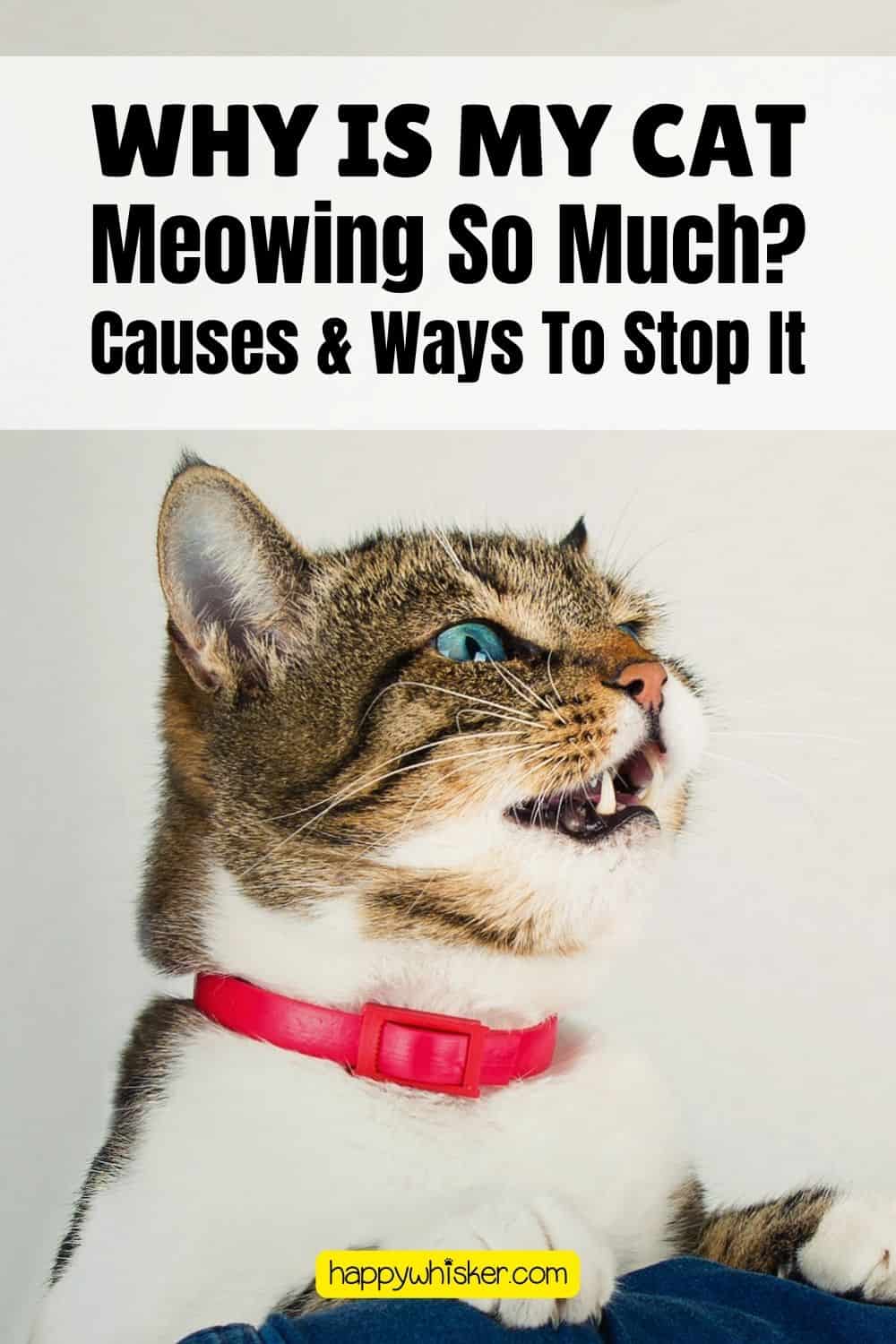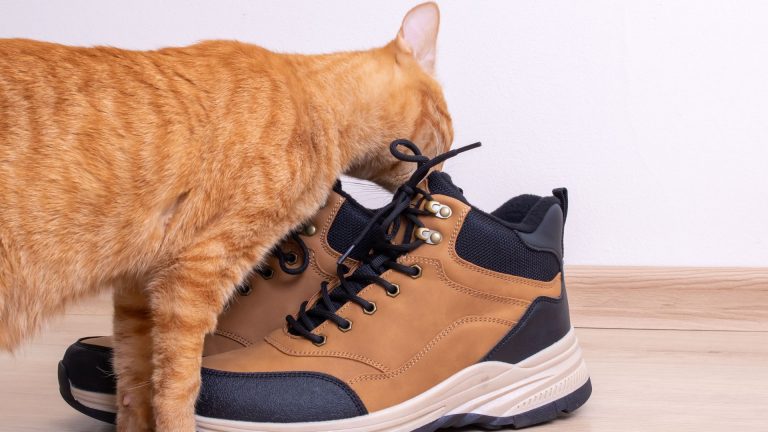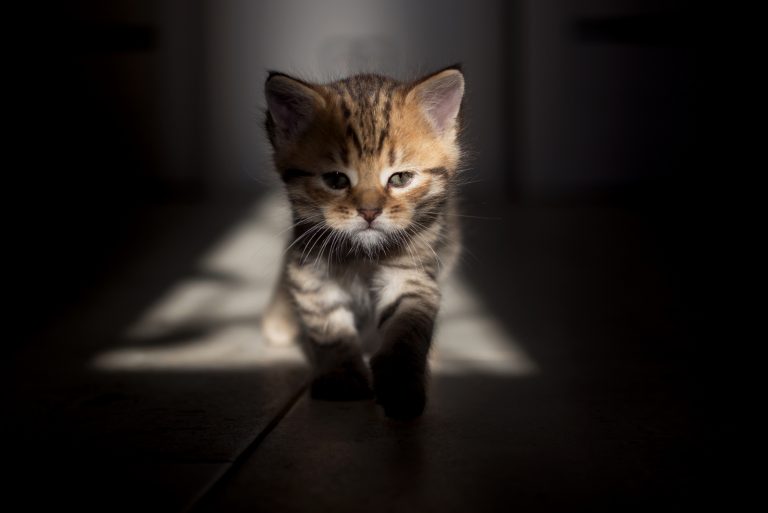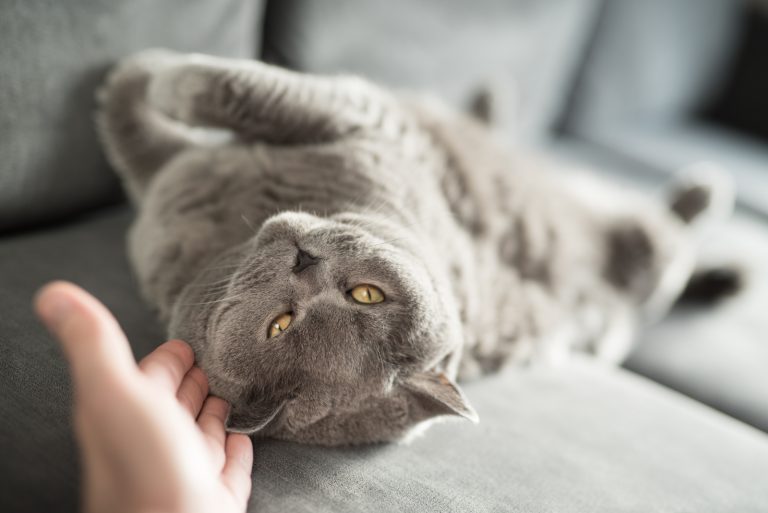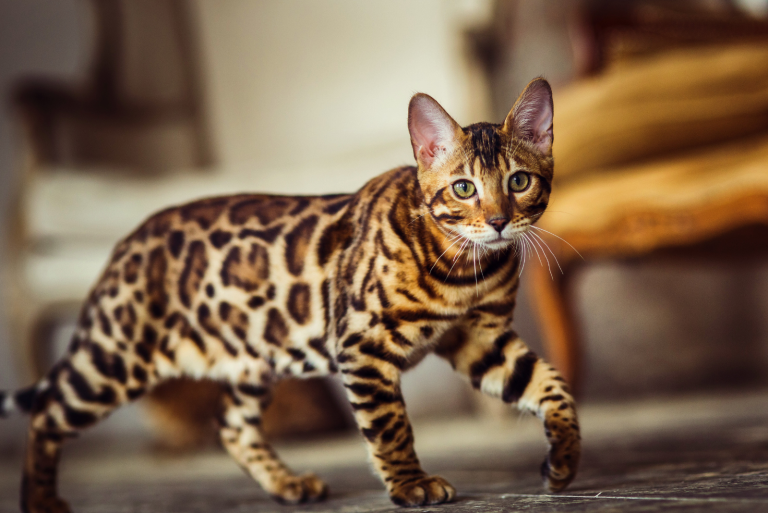Why Is My Cat Meowing So Much? Causes & Ways To Stop It
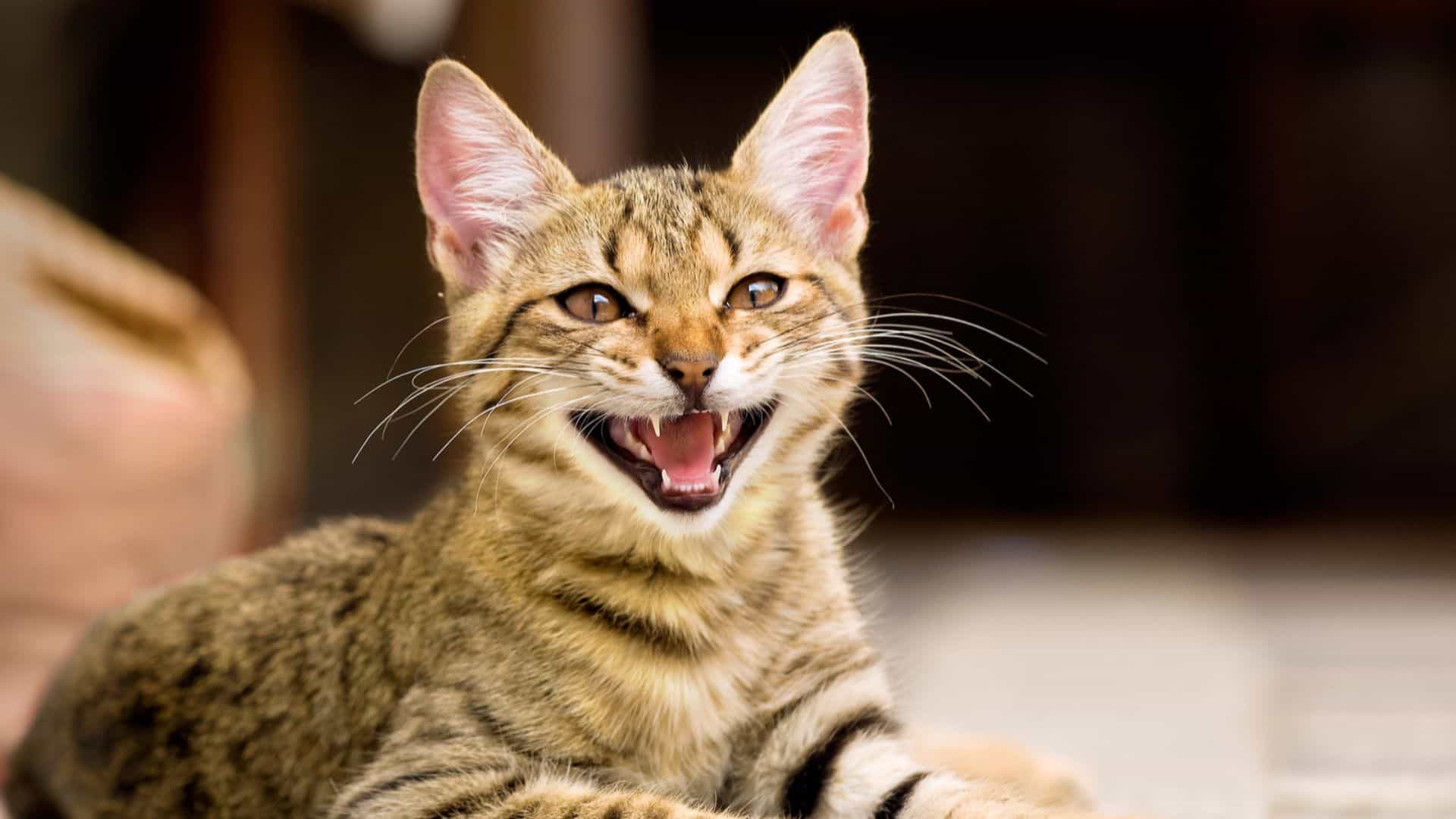
If your kitty has been extra-loud lately and you’re wondering Why is my cat meowing so much? do not worry – I’ve got you covered. I’ve dealt with a fair share of meow-loving cats, so I believe I know quite a lot about this topic.
So, what could be causing a cat’s excessive meowing?
Excessive meowing can be caused by a cat being hungry or thirsty, sick or injured, stressed, experiencing anxiety or fear, being distressed, growing old, or experiencing hearing loss.
It could also be a way for a cat to get attention, attract tomcats, or it is simply a talkative cat by nature!
In this article, I will go over each potential cause separately and give you some tips on stopping your cat from meowing all the time, so make sure to continue reading!
Why Is My Cat Meowing So Much?
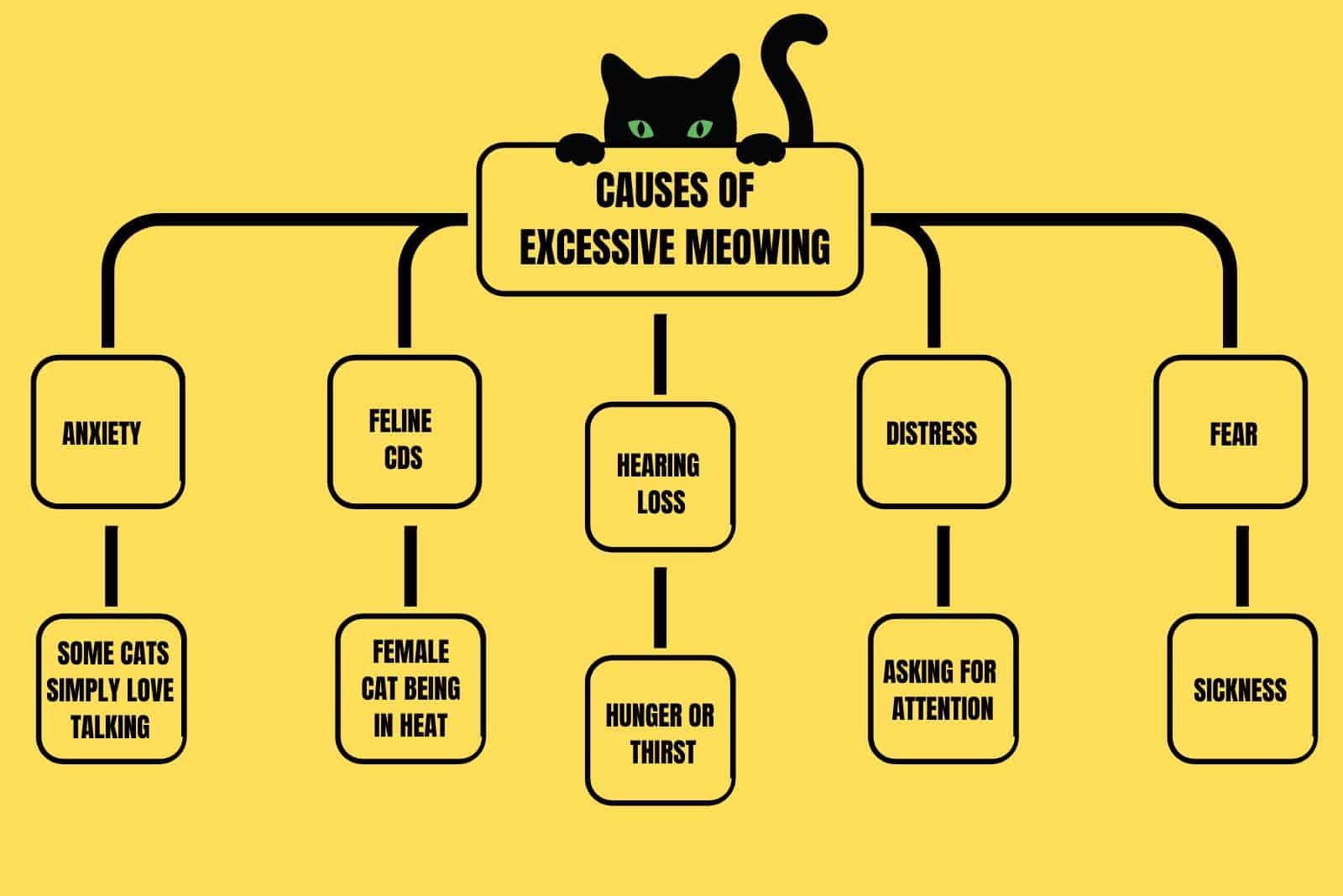
#1 Female Cat Being In Heat
The start of the mating season always puts the entire neighborhood on high alert. Cat behavior during ovulation includes yowling, hissing, and screeching. Intact cats (both male and female) are prone to meowing during this time, but female cats do it more frequently.
Female cats send out signals to surrounding male cats while they are in heat, and one of those signals is, of course – excessive meowing.
Apart from excessive meowing, female cats in heat will also display the following behaviors:
• Being overly affectionate
• Trying to escape from the house often (to find a tomcat)
• Excessively grooming themselves
• Raise their butts up in a characteristic “lordosis position”
#2 Hunger Or Thirst
I believe that all cat lovers must be aware that the thing that every cat loves the most is food. No matter how much you feed them, cats seem to be constantly hungry and meowing for you to feed them again.
One of the most likely reasons your cat is meowing and staring at you is that it needs to be fed.
By meowing (excessively), your cat wishes to remind you that it is dinner, that their food bowl is empty, or to persuade you to give them some treats.
Besides meowing, some cats are prone to purring loudly when it’s time to eat. When cats purr for food, they mix their typical purr with an unpleasant cry or mew, similar to a human baby’s cry.
According to experts, humans are more inclined to respond to this sound.
Suggested: How Much Should A 10 Week Old Kitten Eat? An Owner’s Guide
#3 Sickness
Continuous meowing can be a sign your cat is experiencing pain.
Your cat may be in pain due to a variety of health problems, such as:
• Stomach issues
• Thyroid disease
• Kidney disease
• An injury (such as a broken tail or a broken leg)
• Arthritis
• Many other potential medical issues
If you observe your cat’s meow is weak and raspy but continuous, it can point to laryngitis, upper respiratory infection, or nasopharyngeal polyps.
If your cat is displaying other signs of not feeling well, such as not wanting to eat or drink, not sleeping or sleeping too much, hiding, being lethargic, or aggressive when you want to hold them – I suggest you visit the vet.
#4 Asking For Attention
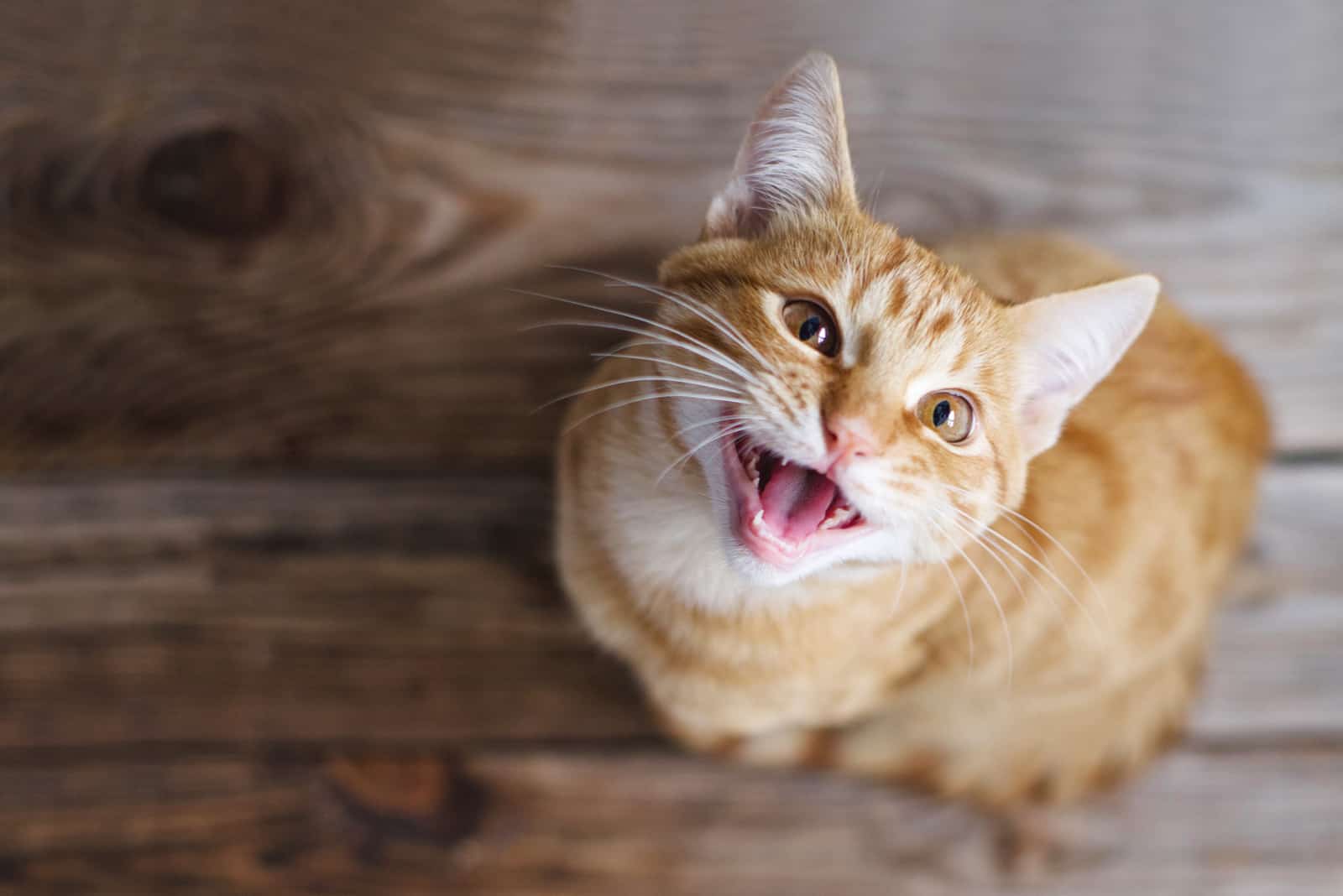
When a cat wants your attention, be sure it will be very vocal and persistent in achieving its goal.
At any age, a cat might exhibit attention-seeking behaviors, such as meowing all the time. Attention seeking can signify loneliness or boredom, or your cat can be an overly-attached cat.
Some cats ask for attention “nicely” by staring at you and purring or meowing for a bit. Others are not so subtle. They might be overly active and mischievous, knocking objects off tables and even biting you or other household members.
Suggested: Why Do Cats Carry Toys And Meow? All You Need To Know!
#5 Fear
When your cat is experiencing fear or is being threatened, it may resort to loudly meowing. Cats do not like loud noises, so thunder and fireworks might cause your cat to become upset.
Cats are also territorial creatures, so any other animal “on your cat’s territory” will cause your cat to feel threatened.
They may meow if the apparent threat is another animal, inside or outdoors.
If you have just introduced a new animal into the house, such as another cat or dog, your cat may feel possessive about its space and terrified by the other creature they are sharing space with.
#6 Anxiety
When cats are anxious or stressed, they frequently become more vocal.
A new pet or newborn, moving to a new home, illness, or the death of a loved one can all cause your cat to meow a lot.
Apart from excessive vocalization, the most common signs your cat might be stressed are:
• Hissing or growling
• Overeating or not eating enough
• Scratching the furniture
• Being more aggressive than usual
• Hiding
#7 Feline Cognitive Dysfunction Syndrome (CDS)
A decline in cognitive function is something many cats experience as they age.
Cognitive decline, also known as feline cognitive dysfunction, or FCD, impacts more than 55% of cats aged 11 to 15 years and more than 80% of cats aged 16 to 20 years.
Signs of feline CDS are:
• Lack of energy
• Hearing loss
• Vision loss
• Forgetting where the litter box, food bowl, or water bowl is
• Spacial disorientation
• Anxiety
• Aggression
• Not wanting to interact with other cats or people
• Being agitated
• Meowing loudly
#8 Hearing Loss
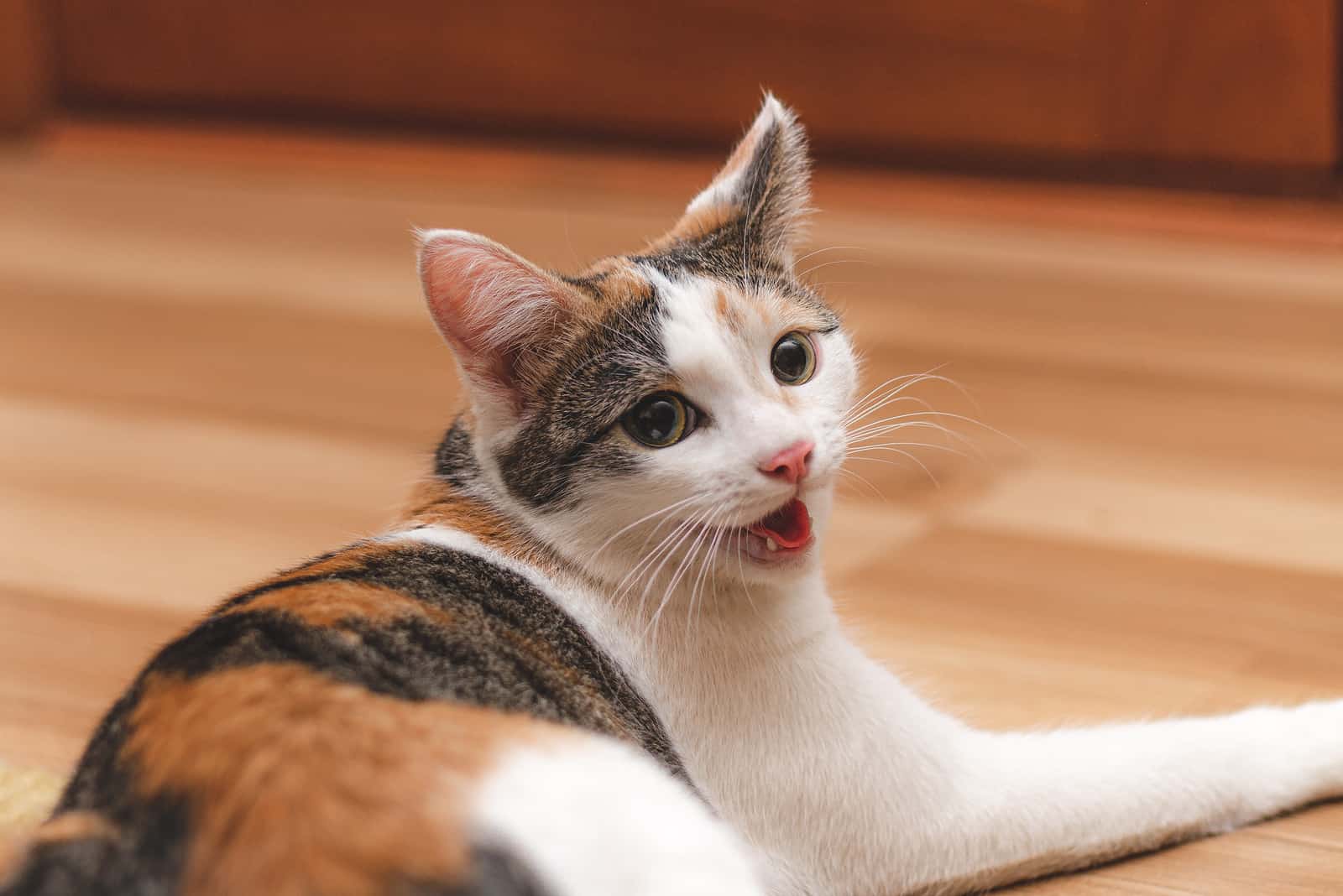
The ability of a cat to hear declines with age, just like ours does. Therefore, older cats are prone to hearing loss.
However, hearing loss in cats does not occur solely due to aging. Cats, like humans, can lose their hearing if exposed to hazardous loudness levels, such as loud music, or due to a sustained injury.
Here are some of the symptoms of cat deafness:
• Meowing loudly
• Meowing at night
• Not responding to their name
• Not reacting to loud noises
• Becoming clingy and needy
#9 Distress
Distress vocalization frequently occurs due to separation from the mother, family, group, or owner; it can also mean your cat is grieving.
Grieving is a natural response when a cat loses a companion, whether animal or human. If your cat is indeed grieving, it might display other symptoms too, such as:
• Being depressed
• Hiding
• Not being energetic
• Not wanting to play
#10 Some Cats Simply Love Talking
Some cats scarcely make a sound, while others howl all the time. Chatty cats purr, meow, chirp, and produce various other sounds.
Some cat breeds appreciate hearing their own voice, and if you enjoy conversing with your cat, one of these felines will be a fantastic fit for you.
The “most vocal cat breeds” list goes like this:
• Siamese
• Japanese bobtail
• Oriental shorthair
• Bengal
• Burmese
• Sphynx
• Tonkinese
Which Cat Is The Most Talkative One?
Siamese cats are the noisiest of all cat breeds and can chatter all day! Siamese cats, among other unique cat sounds, can produce a particular vocalization that sounds like a baby’s cry, which some cat owners find very… annoying, to say the least.
How To Stop Your Cat From Meowing Excessively
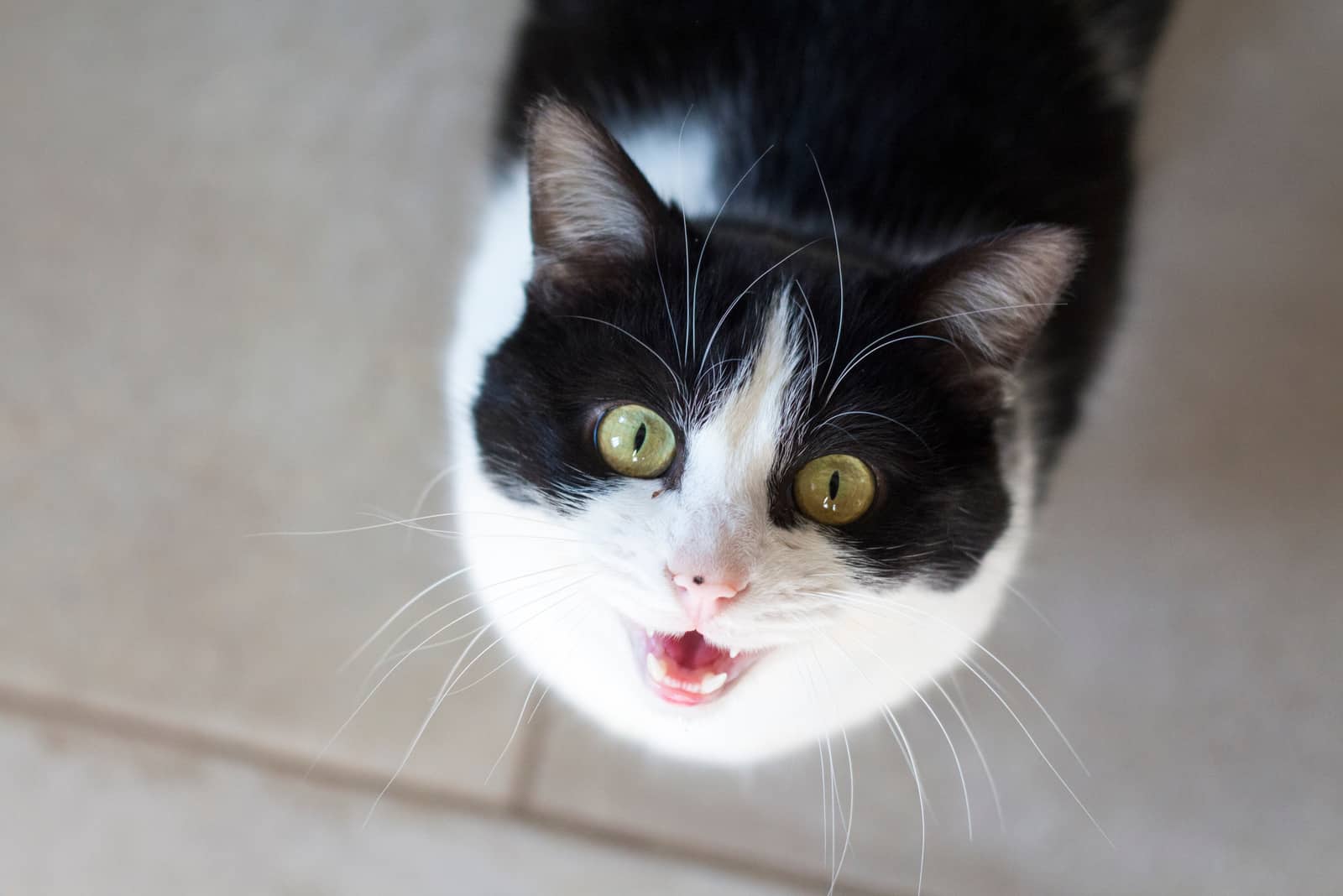
If Your Cat Is In Heat…
• Playing with your cat can briefly divert her, but she’ll likely return to meowing after you’re done.
• Provide your cat with a warm place to sit. Although success is not assured, some individuals find that placing a heat pack or a warm, damp cloth on the cat’s back keeps her still and peaceful.
• Try using catnip. It might relax your cat when in heat, but it will only buy you an hour or two of quiet.
• Spaying a cat removes her ovaries, which stops the heat cycle and heat-cycle-associated behaviors, such as excessive meowing.
Related: How To Get A Cat Out Of Heat Q-Tip & Other Methods
If Your Cat Is Hungry…
A simple solution to stop meowing is to give your cat food if they’re hungry.
However, some cats never appear to be satiated, regardless of how much food they are given or how frequently they are fed. This can happen for various reasons, ranging from simple boredom to serious medical issues.
An overactive thyroid is an example of a disease that will keep your cat constantly hungry. The cat will cry for food more than usual as a result of its hunger.
Therefore, if your cat is always hungry, visit a vet.
If Your Cat Is Sick Or Injured…
If you observe your cat is sick or injured, you should visit the vet, especially if you see that you cannot help your cat in any way.
If Your Cat Is Always Asking For Attention…
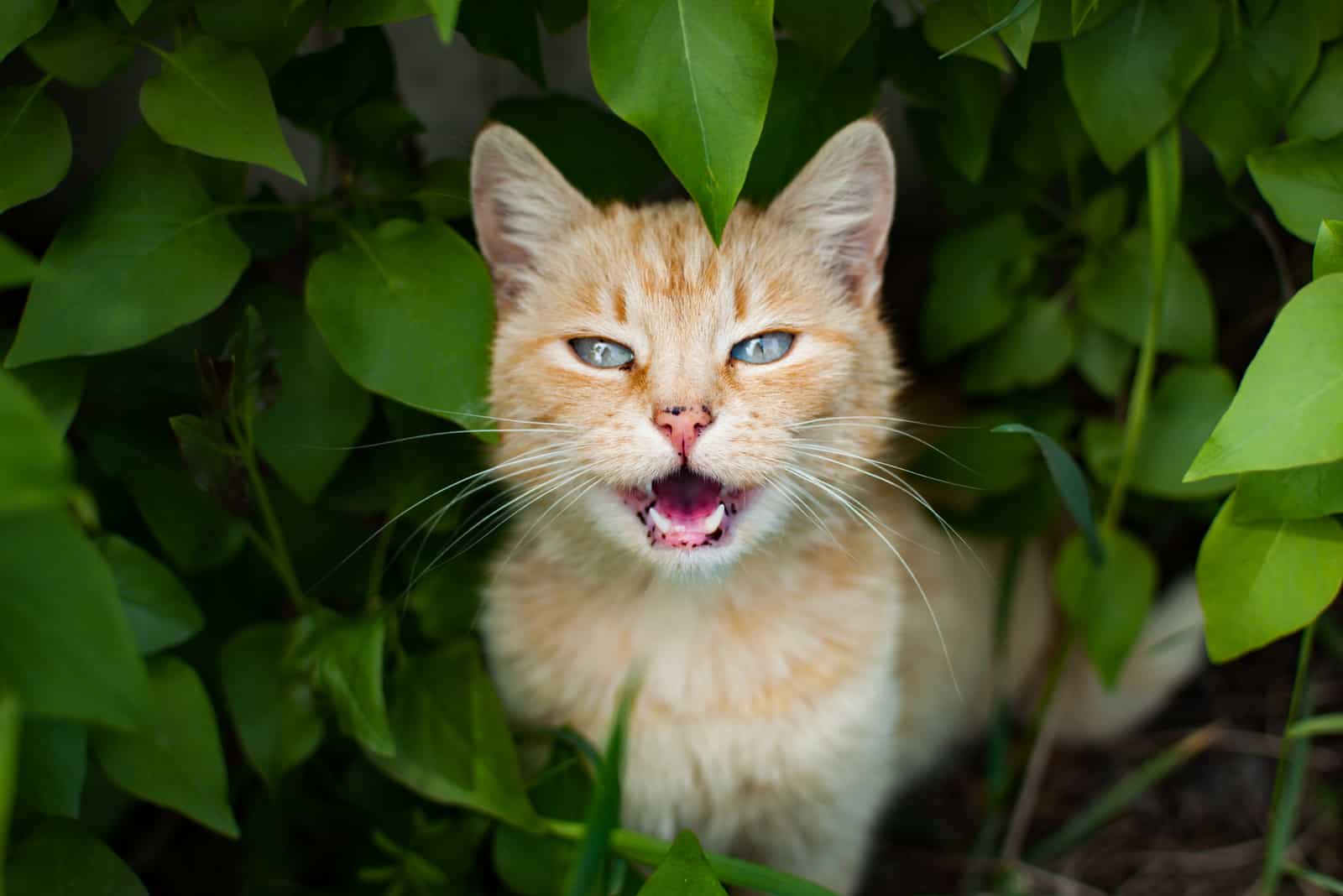
If you do not pay enough attention to your cat, it will most likely feel ignored and will meow more. Your cat’s attention-seeking may result in several behavioral issues.
If your pet spends too many hours alone each day, consider hiring a pet sitter to improve your pet’s life. Place a bird feeder outside a window where they can see it. Provide your cat with many toys. Invest in a cat tree or get them a kitty condo.
Related: My Cat Wont Leave Me Alone – 10 Causes And 10 Solutions
If Your Cat Is Afraid…
Try to find out what’s causing your cat to be scared. If your cat is scared of something you cannot see, that might be a difficult task.
If you find the cause of your cat’s feelings (such as your neighbor’s dog being in your backyard), that will most likely be an easy fix. If you cannot find the cause, I suggest talking to your vet about it.
If Your Cat Is Experiencing Anxiety…
Find out what is causing anxiety in your pet. Then, try to remove the cause of the stress if possible. If that is not possible, help your cat adjust to the change by providing extra attention.
If that isn’t working, talk to your doctor about how to efficiently lower your cat’s anxiety levels.
If Your Cat Has Feline CDS…
Although CDS cannot be cured, the symptoms can be decreased with appropriate therapy, such as modifying the cat’s habitat and optimizing its diet to be healthier.
These choices can be discussed with your veterinarian, as they will know exactly what your cat might need to live a happy life.
If Your Cat Is Experiencing Hearing Loss…
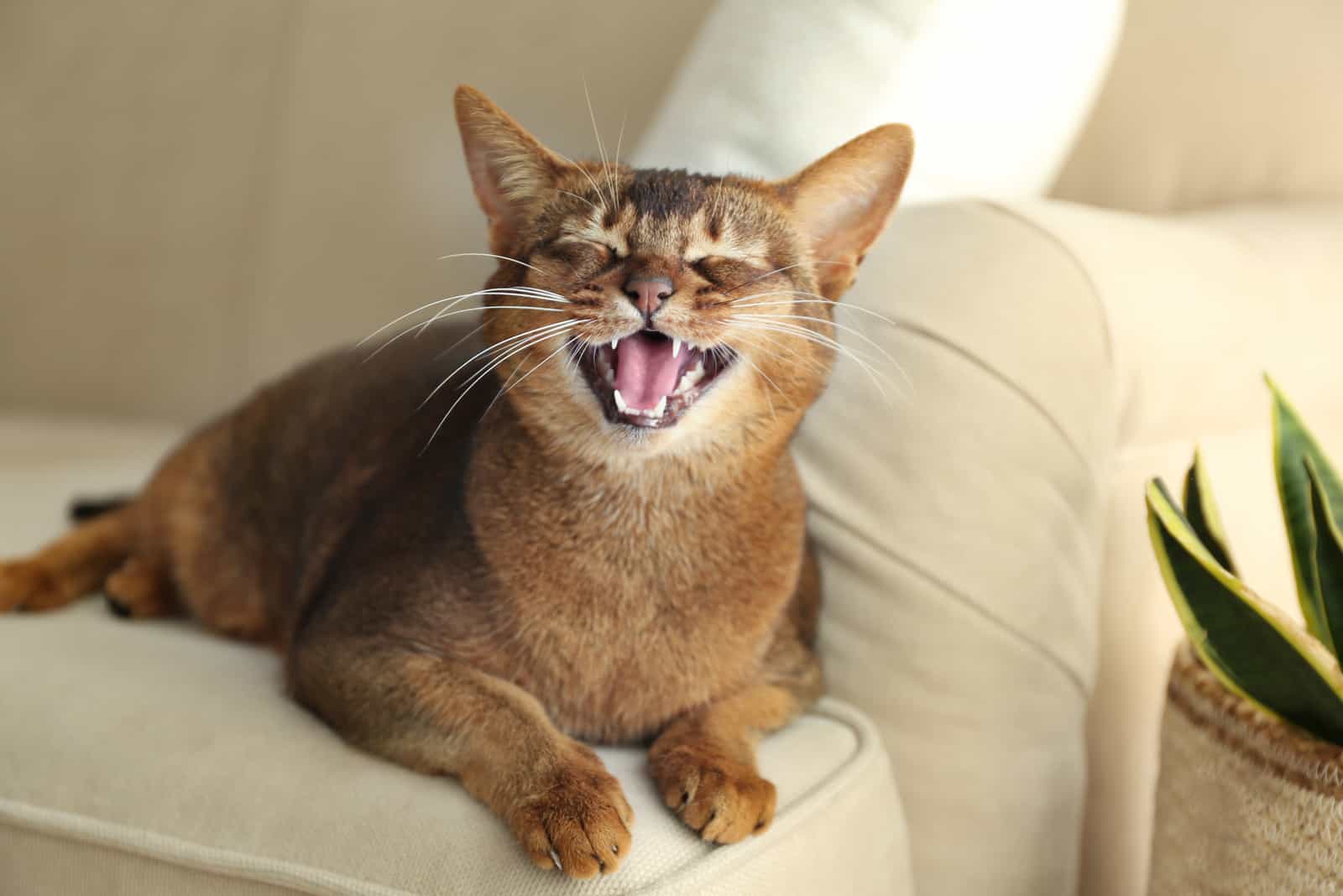
If you suspect your cat is deaf, you should take them to the vet. Unless they’ve been deaf their entire lives, you should have your veterinarian examine them to discover the reason for their hearing loss.
Congenital deafness has no effective treatment. However, many cats who are partially or completely deaf adapt well to their condition.
So if your cat is experiencing irreversible hearing loss, do not panic – they will have a perfectly normal life with just a few adjustments!
If Your Cat Is Distressed…
Keeping your cat’s routine as consistent as possible will benefit them in the days and weeks following a loss.
• Maintain the same mealtimes as before.
• Check that they eat, drink, and use the litter box properly.
Contact your veterinarian if your cat goes two or more days without eating.
• Pheromones and catnip may aid in relaxing your cat.
• Spend more time with your cat and give them extra love.
If Your Cat Is A Talkative Cat…
If you’ve got yourself an extra-talkative cat, there is nothing you can do about it. Some cats love meowing and do not care about what others think!
What You Should Not Do
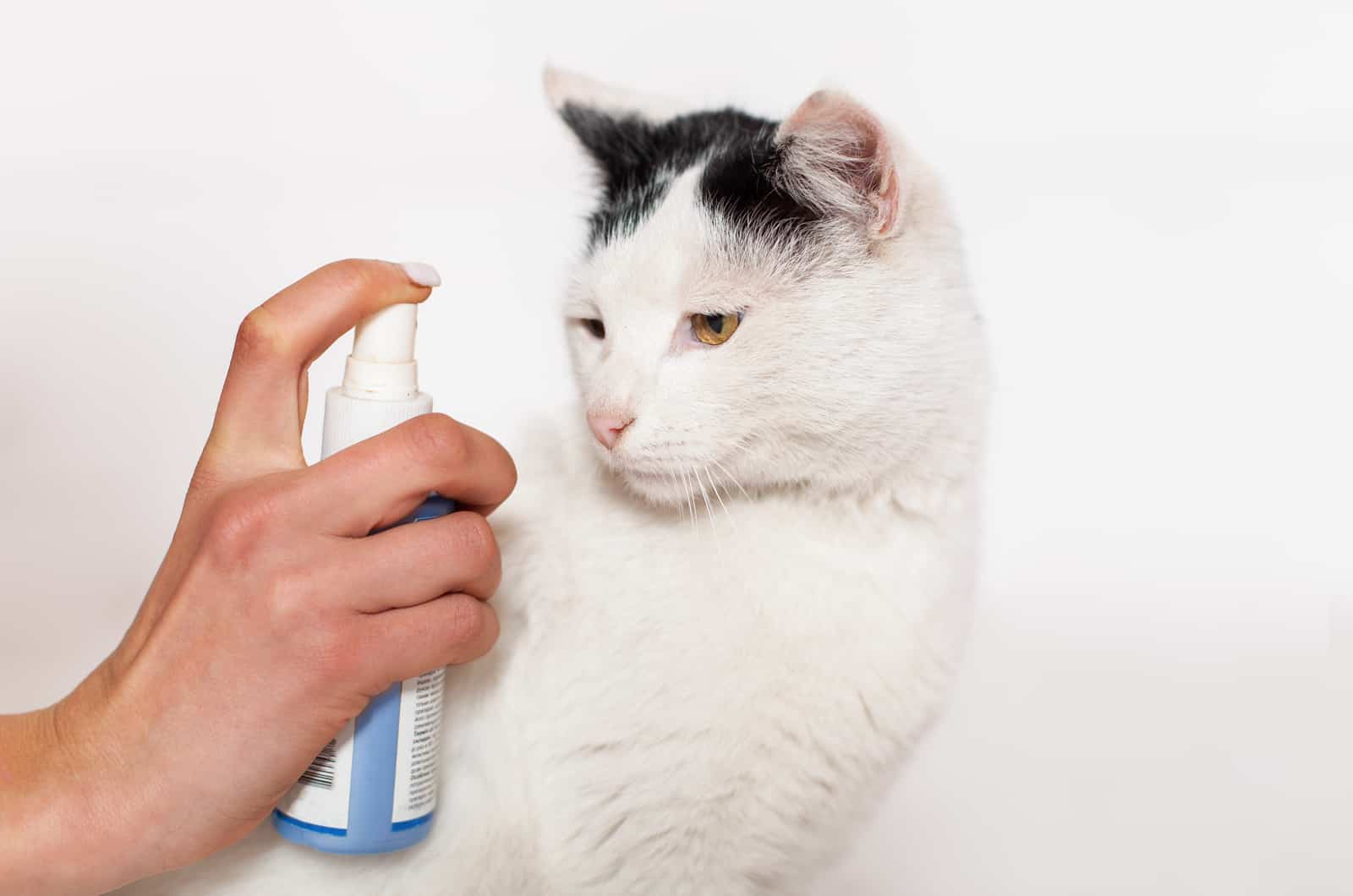
#1 Punish Your Cat
Don’t punish a meowing cat. Hitting, yelling, and spraying cats with water rarely helps, and in fact, it may result in an opposite effect – your cat might start expressing an even louder type of vocalization!
Your cat might start to express other behavior problems, such as scratching the furniture or biting you.
#2 Ignore Your Cat
First, you need to find out why your cat is meowing so much. If it’s not due to the cat’s personality, the cause of excessive meowing might be something that needs your (or the vet’s) attention.
Meowing can be a sign of sustained injury, numerous diseases, mental confusion, or stress. All of the mentioned causes usually require veterinarian attention.
Therefore, ensure that your cat is perfectly healthy, and then you can ignore your cat a little bit if they’re loud just because they want to be loud!
#3 Reward This Behavior
Rewarding bad behavior is never a good option to solve an issue. You might think that petting and picking up your cat and petting is a good way to stop them from meowing, but it is not. It is only a temporary solution.
Cats respond well to positive reinforcement, so cats will remember when they get something they like. Most cats enjoy receiving attention, food, toys, or all three.
Choose a motivator that will encourage your cat to perform what you want it to accomplish while providing positive reinforcement.
When your cat stops meowing, reward them. If you’re having trouble finding something to inspire your cat, consider tuna, canned spray cheese, prawns, and catnip. In this way, you’re promoting behavioral modifications and quiet behavior.
FAQ
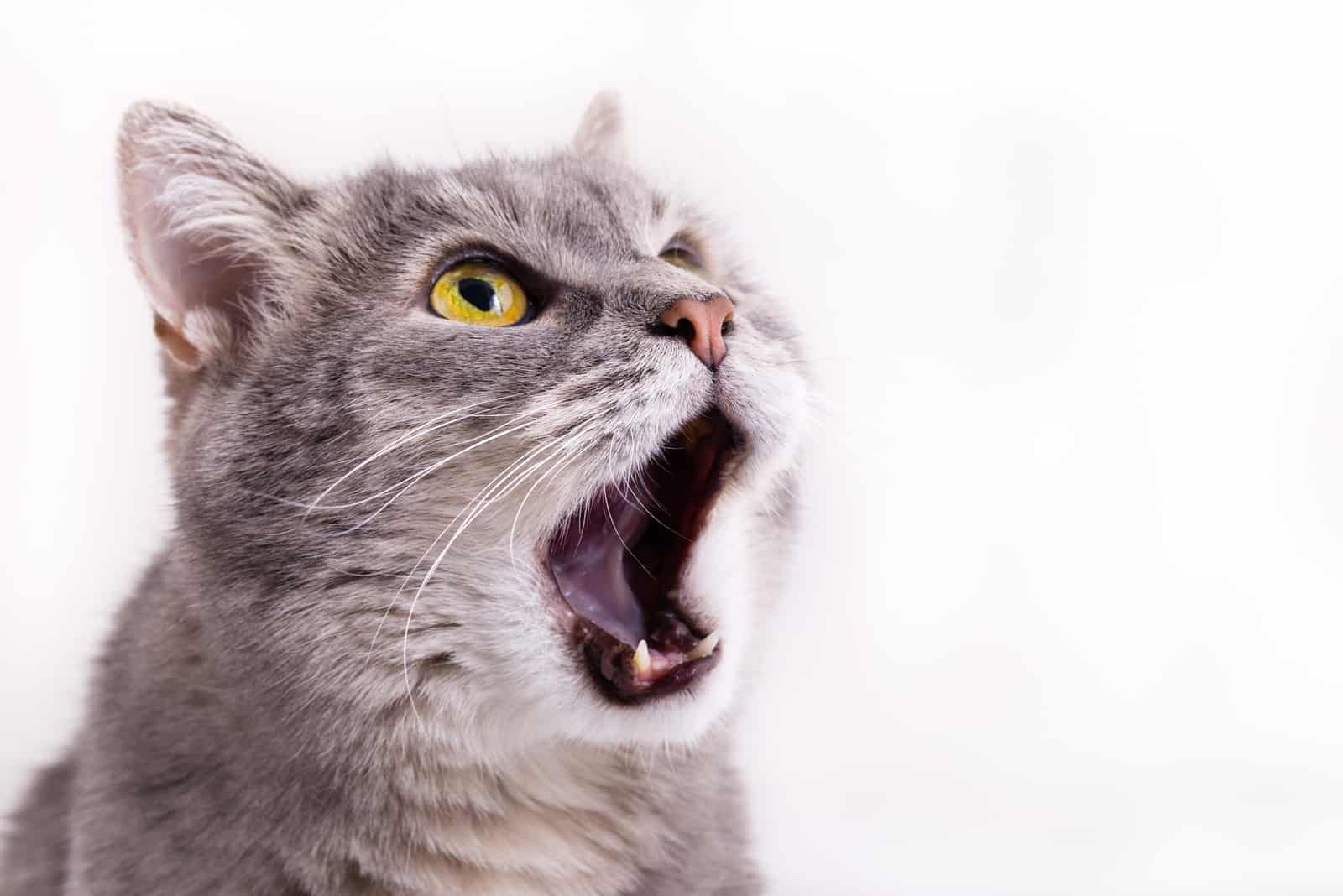
Why Is My Cat Meowing At Me?
Your cat is most likely meowing at you because they want something from you, such as your attention, food, or water, or to inform you something is wrong with them or their surroundings.
Why Is My Cat Meowing In The Middle Of The Night?
Your cat may meow at night if they are bored, unstimulated, energetic, or lonely. If your cat continues to cry at night despite plenty of playtime, underlying health issues need to be considered.
Is It OK To Ignore My Cat Meowing?
Before you resort to ignoring your cat’s meows, find the cause of their constant meowing. If your cat is meowing due to a medical condition, that is definitely something that should not be ignored.
The most common reasons for meowing require your attention and need to be solved. Therefore, it’s best not to ignore your cat unless you’re sure they’re healthy.
In Conclusion
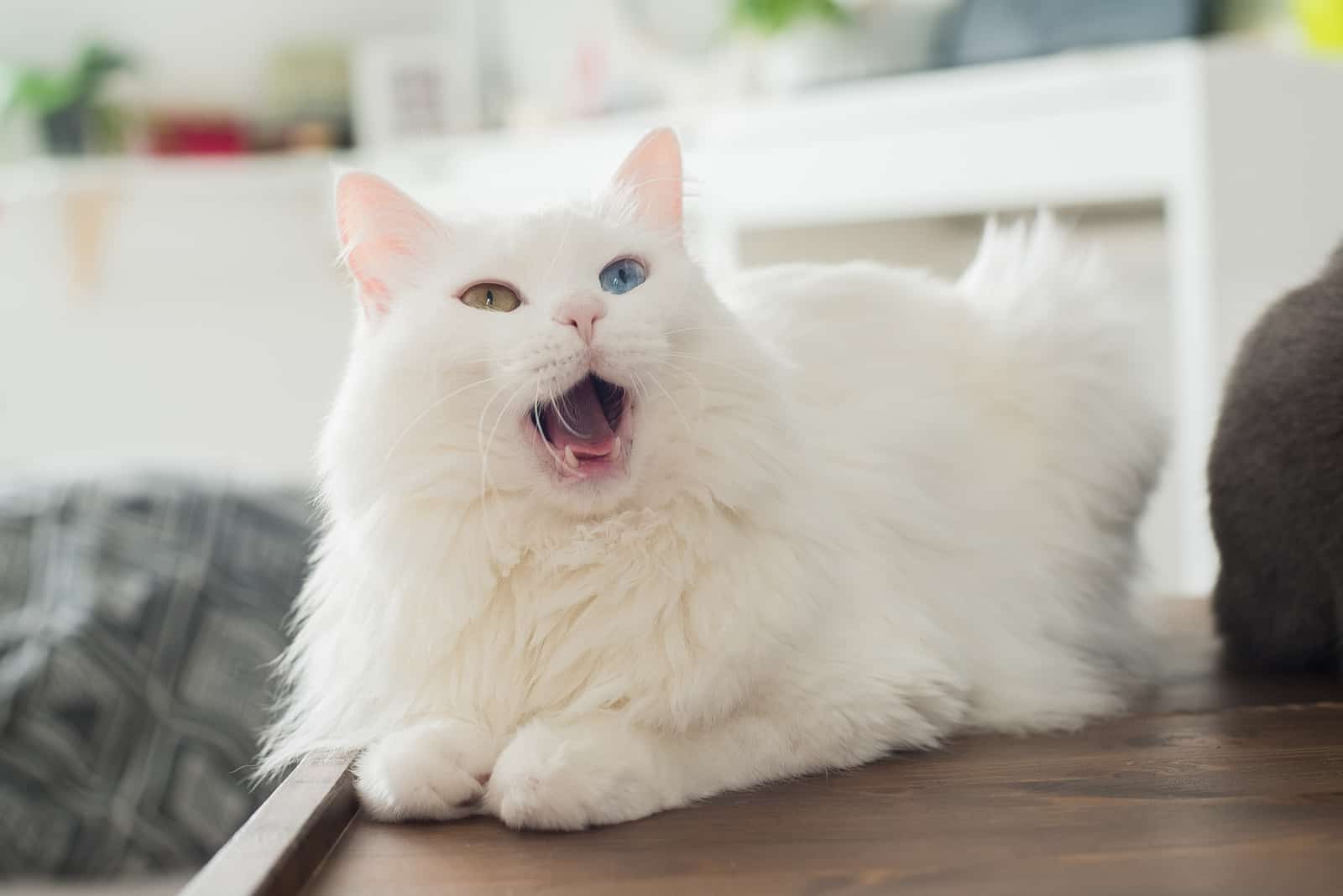
Now you know the answer to Why is my cat meowing so much? and how to solve it efficiently!
Constant meowing is not something cat owners and other household members enjoy listening to, so for the well-being of everyone involved, it’s best to devote some time to solving this issue.
Make sure not to punish your cat, reward bad behavior, or ignore their meows, as they can indicate an underlying medical issue!
Related Articles:
Why Is My Cat Licking My Blanket? Reasons + Solutions!
Why Is My Cat Chewing On Nothing? 14 Reasons!Why Do Cats Gag At Combs: Explained
Like this post? Share or pin it for later!
